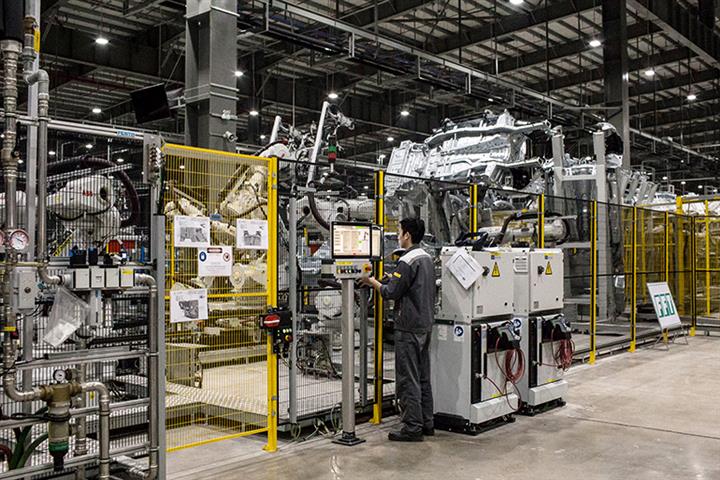 Vietnam Is Rising as Competitive Production Base, Yicai Research Institute Report Says
Vietnam Is Rising as Competitive Production Base, Yicai Research Institute Report Says(Yicai Global) Nov. 11 -- In the next 10 years, Vietnam is expected to become one of the most competitive manufacturing bases in the Asia-Pacific region, and Thailand may be attractive for industries needing efficient logistics and strict quality control, according to a new report.
Cambodia’s desire to develop its economy means it also has market potential, and Myanmar may become an important logistics hub, according to the report released today by Yicai Global’s affiliated think tank, Yicai Research Institute. The report used surveys of Chinese businesses that operate in Vietnam and analyzed the transfer of some links in the industrial chain from China to Thailand, Cambodia and Myanmar.
In addition to low labor and land costs, Vietnam also has advantages in terms of market thresholds and tariffs as it has joined several free trade agreements, and its capital market can meet corporate financing needs. As well as firms from Europe and the United States, some Chinese companies have also started operating in Vietnam amid China-US trade frictions.
In the short and medium term, Vietnam is an ideal place for China to relocate parts of its industrial chain in areas such as electronics manufacturing, textiles, footwear, apparel and furniture.
But the transfer involves mainly low-end industrial activity, according to Chinese firms Loctek Ergonomic Technology and Goertek, as their headquarters still need to send management and technical personnel to their plants in Vietnam.
The move to build a manufacturing base in Vietnam was prompted by trade frictions as well as labor and tax factors, said Xiang Lehong, chairman of Loctek, which makes ergonomic office furniture. The products made at its Vietnam plant are mainly exported to the US, and those from its Ningbo factory are mainly for the Chinese market, Europe and other countries.
Goertek, an acoustic products firm and supplier for US tech giant Apple, entered Vietnam in 2012, said Chairman Jiang Bin. In the next few years, the company’s production capacity in Vietnam may account for a quarter of its total, Jiang said.
As the second-largest economy in the Association of Southeast Asian Nations, Thailand has geographical advantages, a stable society, a relatively high degree of policy transparency and free trade, as well as relatively good infrastructure and industrial chains. The country is attractive for companies that need efficient logistics and strict quality control, such as automotive and electronics firms.
But Thailand still has insufficient power and water supplies, higher labor costs compared with other Southeast Asian countries, and a shortage of high-end talent.
Cambodia has preferential tariffs, a free and open economic system, abundant and cheap labor, but underdeveloped transportation, insufficient water and power supplies, frequent strikes, and high dependence on imported raw materials and supporting industries, which constrain foreign investment.
Myanmar’s economy has been greatly affected by the Covid-19 pandemic and political unrest in recent years. The country has relatively few foreign investors and its electronics manufacturing focuses on the lower end of the industrial chain, the report said.
Editor: Tom Litting